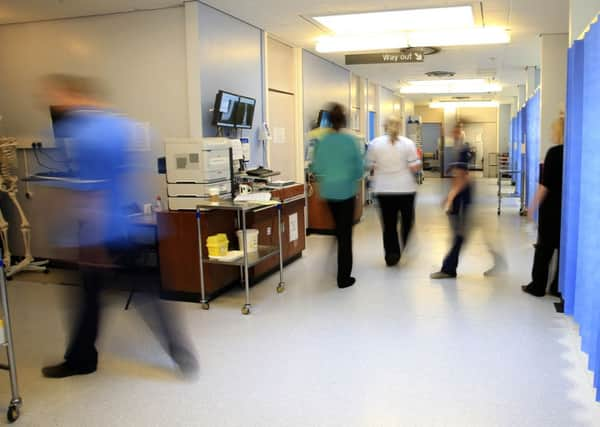Cancelled surgery at 13-year high


Figures released by NHS England show there were 19,471 operations cancelled for non-clinical reasons between October and December, a 23 per cent increase on 2013.
It is the highest figure in the quarter since 2001, when 20,036 were cancelled.
Advertisement
Hide AdAdvertisement
Hide AdNHS England said that of the operations that were cancelled, 1,230 patients were not treated within the promised 28 days.
Shadow health secretary Andy Burnham said: “These are the worst figures for well over a decade and that is another sign of how the NHS has gone downhill.
“Far too many are now suffering the distress of having operations cancelled at the last minute.
“Thousands of patients are not having their operations re-fixed within a month as they are entitled to too.”
Advertisement
Hide AdAdvertisement
Hide AdAn NHS England spokesman said: “We have faced unprecedented demands on A&E and other frontline services over the winter, which is the period covered by these latest figures.
“Due to urgent and emergency cases, it is sometimes necessary to cancel a planned operation.
“When an operation is cancelled, hospitals should rearrange it as quickly as possible.”
Latest figures show waiting times in A&E departments in England improved slightly last week, but still failed to meet the target of 95 per cent of patients seen within four hours.
Advertisement
Hide AdAdvertisement
Hide AdWaits at Hull Royal Infirmary remained the worst in England for the third week running, with 74.4 per cent of patients seen in four hours.
Statistics released by NHS England showed 92.9 per cent of patients were admitted, transferred or discharged within the four-hour limit in the week ending last Sunday, up from 92.3 per cent the previous week. It is the 19th week in succession that the goal of 95 per cent has been missed.
In Yorkshire, six out of 14 NHS trusts met the A&E arget - Harrogate, Airedale, Bradford, Leeds, Barnsley and Sheffield Children’s Hospital.
The cold weather contributed to a 6,400 rise in A&E attendances compared with the week before in England. There were 407,400 attendances in A&E overall, up from 401,000 the previous week but still below the peak of 440,000 experienced before Christmas.
Advertisement
Hide AdAdvertisement
Hide AdThe number of cases of “bed-blocking” were down, with 4,000 hospitals beds unavailable for incoming patients because of delays in transfers of occupants to care elsewhere, down from 4,200 the previous week.
Sarah Pinto-Duschinsky, director of operations and delivery for NHS England, said: “A&E performance moved in the right direction week-on-week giving cause for cautious optimism, with more than nine out of 10 patients being admitted, treated and discharged within four hours.
“This has been achieved in the face of increased pressure on A&E with both the number of attendances and emergency admissions having gone up this week.”
She said cold weather can add to increased levels of respiratory illness, particularly among the elderly.
Advertisement
Hide AdAdvertisement
Hide AdMeanwhile, figures from Public Health England showed “significant excess mortality” among over-65s for the ninth week in succession. This coincides with the circulation of a flu virus against which vaccines are this year providing unusually low levels of protection, coupled with the cold weather. Flu levels were lower than the previous week, particularly in the elderly.